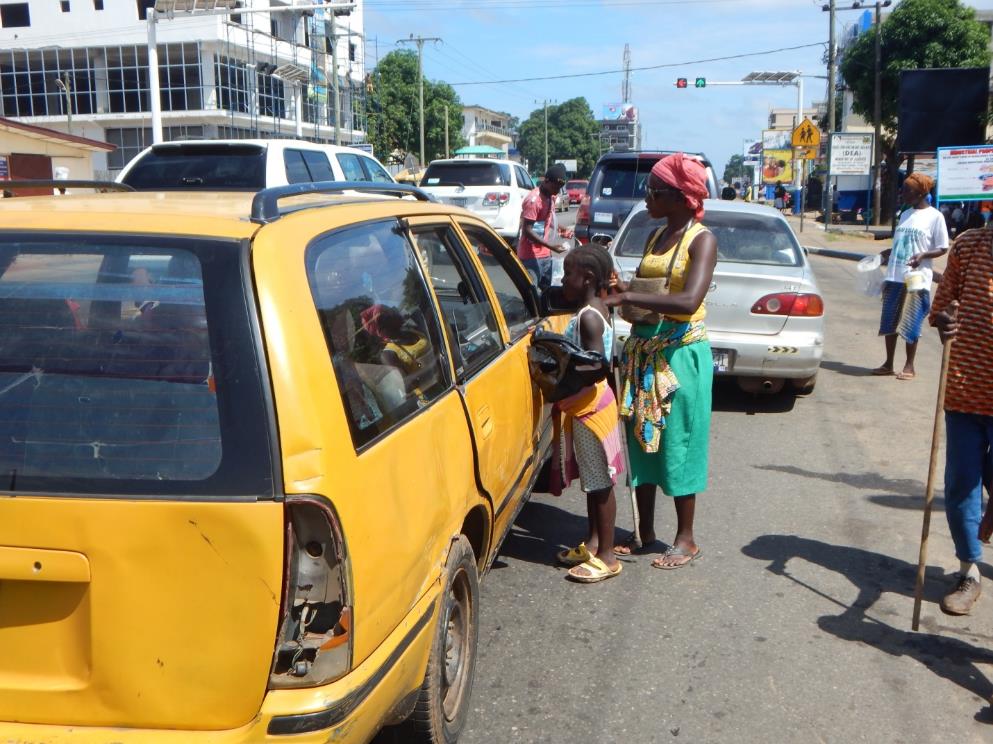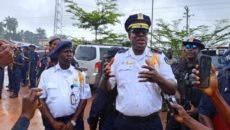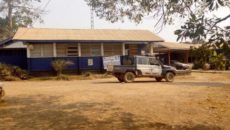For most children, a typical day revolves around going to school, playing a game or two with other kids and then returning home to do homework. With no worries, they rely on their parents for everything they need, as they should.
However, many children whose parents are visually impaired rarely enjoy that experience. Their days revolve around guiding their parents as they maneuver through traffic, begging travelers for money, food, and drink.
They are not the only ones, though. Children orphaned by Ebola suffer a similar condition. To look after themselves, they have no option but to beg for survival. They are their own guardians.
Liberia’s Problem
Destined Kids Assistance Program, a local nongovernmental organization founded in 2012, has tried to respond. However, according to their Executive Director, Helena D.K. Wenneh, they could use some help. In fact, they crave for the support.
The “children’s future rests on each and every Liberian,†she says.
In an interview with The Bush Chicken, Wenneh said her organization aims to promote the educational needs and wellbeing of these underprivileged children.
By providing food and education, her group currently supports 68 children in 28 schools in Montserrado and nearby communities.
On children whose parents are visually impaired, she said her organization has been able to take one child from each family in the ELWA Rock Hill, Pipeline, and Forestry Development Authority communities.
She hopes that the children she supports would return as a beacon of light to their families.
Ebola’s Twofold Blow
Wenneh explained that during the 2014 outbreak, several children’s parents died from the disease. To get support, the kids needed their parent’s death certificates. Naturally, it was difficult, so they failed.
Although Wenneh managed to help some children in this regard, she concedes that “getting the rest,†is “the major challenge.â€
Stories From Visually Impaired Parents

Teta Massaquoi, a visually impaired mother, begs alongside her son in the street. Photo: Zeze Ballah
Teta Massaquoi, a 28-year-old blind female and resident of the Chicken Soup Factory community, said she is compelled to leave her home at 5:00 a.m. every Monday to Saturday to beg for food.
Massaquoi said she has three children and receives support from no one, adding that her husband is also blind and does not have the means of supporting her and her children.
She started experiencing blindness in 2014 after giving birth to her first child.
“I earn L$300-400 (US$3.09-4.12) every day, which I use to help support my children in school and also feed us,†she said.
She may not like it, but says she feels it’s safer for her and her kids to move between vehicles begging for money.
“I am tired of being in the streets every day to begging for money,†she said.
Jonah Kannoh, aged 11 years, and a 4th-grade student of the Woods Patrick School said he joins his mother every day after school to beg for money.
Janah narrated that at times when there is no food in their home, he leaves school and joins his mother.
An officer of the Liberia National Police stationed at the corner of Broad and Johnson streets who spoke anonymously said he has no authority to remove visually impaired people from the streets.
According to the officer, the government should put into place programs for the wellbeing of these visually impaired people and their children.
“It is dangerous to see these people along with their kids among moving vehicles begging for survival,†he said.
Featured photo by Zeze Ballah






